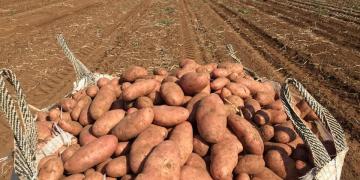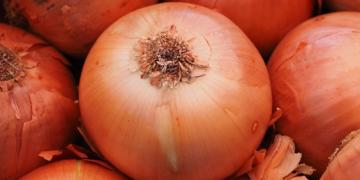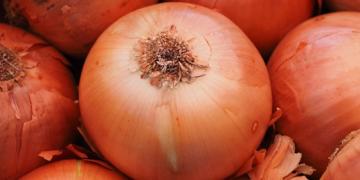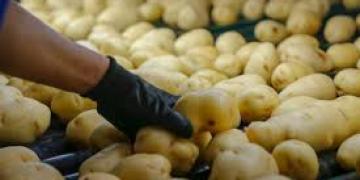Paraguay (Ybytymí): Senave technicians take samples of potato plants affected by blight
In the districts of General Caballero and Ybytymí, an estimated 20% of potato crops were lost due to blight.
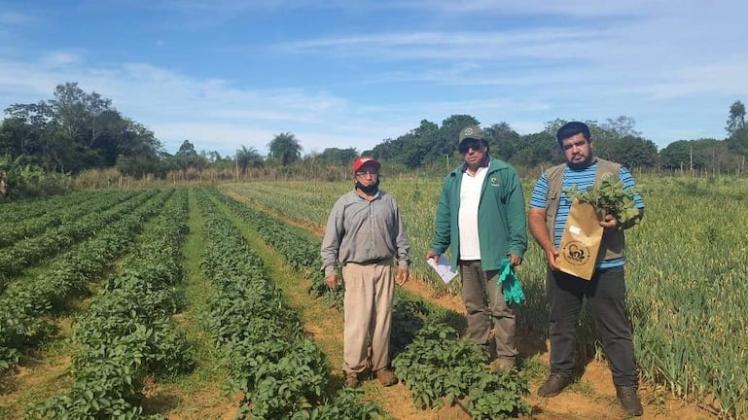
Given the presence of the blight pest that began attacking potato crops in companies in this district and part of the municipality of General Caballero, technicians from the National Service for Plant Quality, Health, and Seeds (Senave) visited the affected farms, collected samples of the diseased plants, and sent them for analysis.
In the districts of General Caballero and Ybytymí, an estimated 20% of potato crops were lost due to blight. The disease affected up to 90% of the crops , although most recovered thanks to the rapid intervention of the producers themselves, who carried out spraying following the guidelines received in pre-planting training, explained Adrián Jara, manager of the Agricultural Development Center (CDA) in the Paraguarí region .
He also indicated that Senave technicians, Mario Torres and Moisés Barros , collected samples from plants during the harvest stage, where blight had caused total losses. One case is that of producer Selva Carballo , who had more than one hectare of potatoes and lost her entire crop.
The situation is causing great concern among farmers, as many of them are in debt and are now unable to pay, producers complained.
Engineer Jara stated that the samples were sent to the Senave laboratory and, once the results are obtained, guidelines for the affected farms will be announced.
On the other hand, he recalled that in the department of Paraguarí, 532,440 kilograms of potato seeds were delivered for the current harvest , equivalent to approximately 410 hectares. Producers equipped with irrigation systems are recording yields of more than 20,000 kilograms per hectare , while those who still use traditional systems achieve an estimated average of 12,000 to 15,000 kilograms per hectare .
Recommendations for combating blight
Agricultural engineer Edgar Lorenzo Rojas Giménez , an official with the Ministry of Agriculture and Livestock (MAG), provided preventive guidance for dealing with blight, a disease caused by a fungus that usually affects more sensitive varieties and also depends on the degree of acidity or alkalinity of the soil.
Among the recommendations, he highlighted the use of Bordeaux mixture , an inexpensive and effective preparation that growers can make themselves. It acts as a fungistatic, meaning it slows the growth of fungi and can also eliminate them in the first outbreaks.
Preparation of Bordeaux mixture (100 liters):
- 1 kilo of slaked lime or hydrated lime.
- 1 kilo of copper sulphate (or, failing that, copper oxychloride).
- 100 liters of water.
Each component must be diluted separately and then mixed. The product is applied with backpack sprayers every 15 days, from the beginning of the crop, including during germination and sprouting, always as a preventative treatment.
“Copper acts as a highly functional micronutrient, while calcium helps balance the soil’s pH, thus preventing the spread of the fungus,” Rojas explained.
Complementary use of powdered sulfur
The MAG official also recommended the use of powdered sulfur , an affordable and effective product against various diseases. "Sulfur, in addition to being a macronutrient that contributes to the plant’s physiological process, promotes photosynthesis and glucose production. It can be applied as a dusting or dissolved spray on the crop, preferably in the afternoon, as it is slightly caustic, and intense heat could damage the plant," he noted.
A more economical alternative
Engineer Rojas emphasized that these practices are much more economical than specialized commercial anti-fungal products, which can cost up to G. 700,000 per liter . In contrast, preparing 100 liters of Bordeaux mixture costs approximately G. 80,000 , representing considerable savings for producers.
Potato production can be protected before cultivation using inexpensive fungicides.Finally, he emphasized that "these are practical, economical, and accessible measures for farmers who need to protect their crops without excessively raising production costs."
Fuente: Traducido por Argenpapa de: abc.com.py

